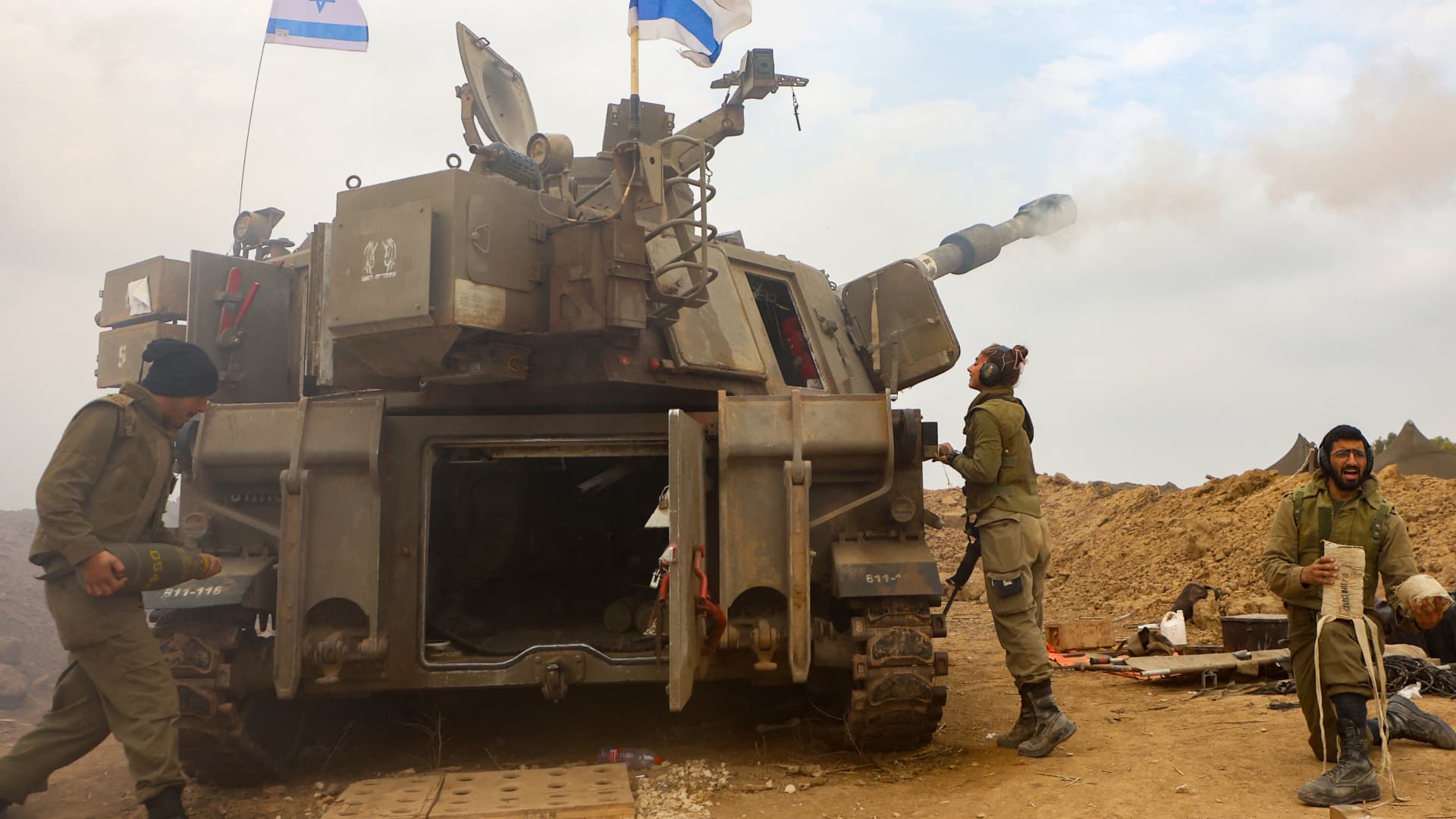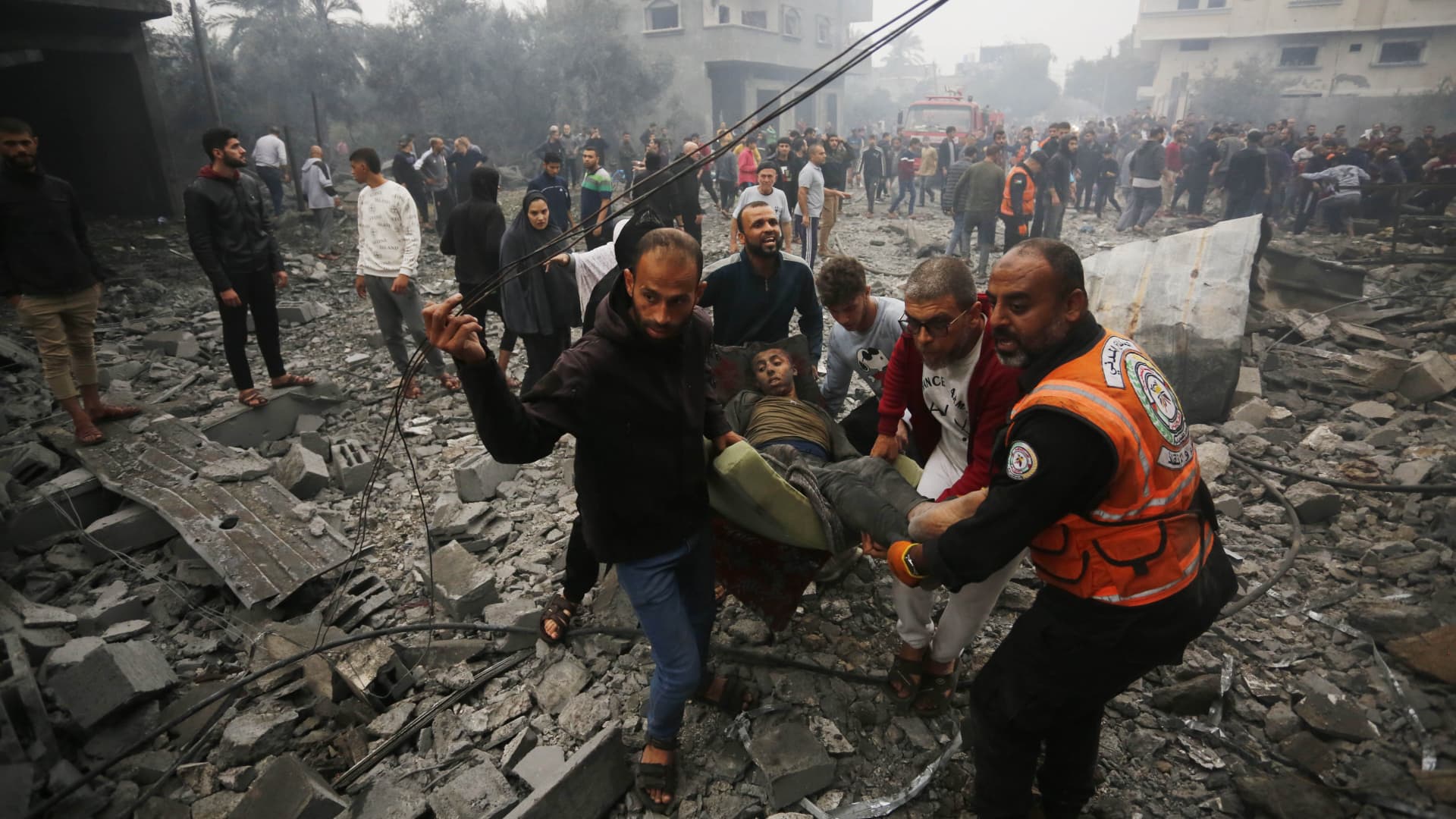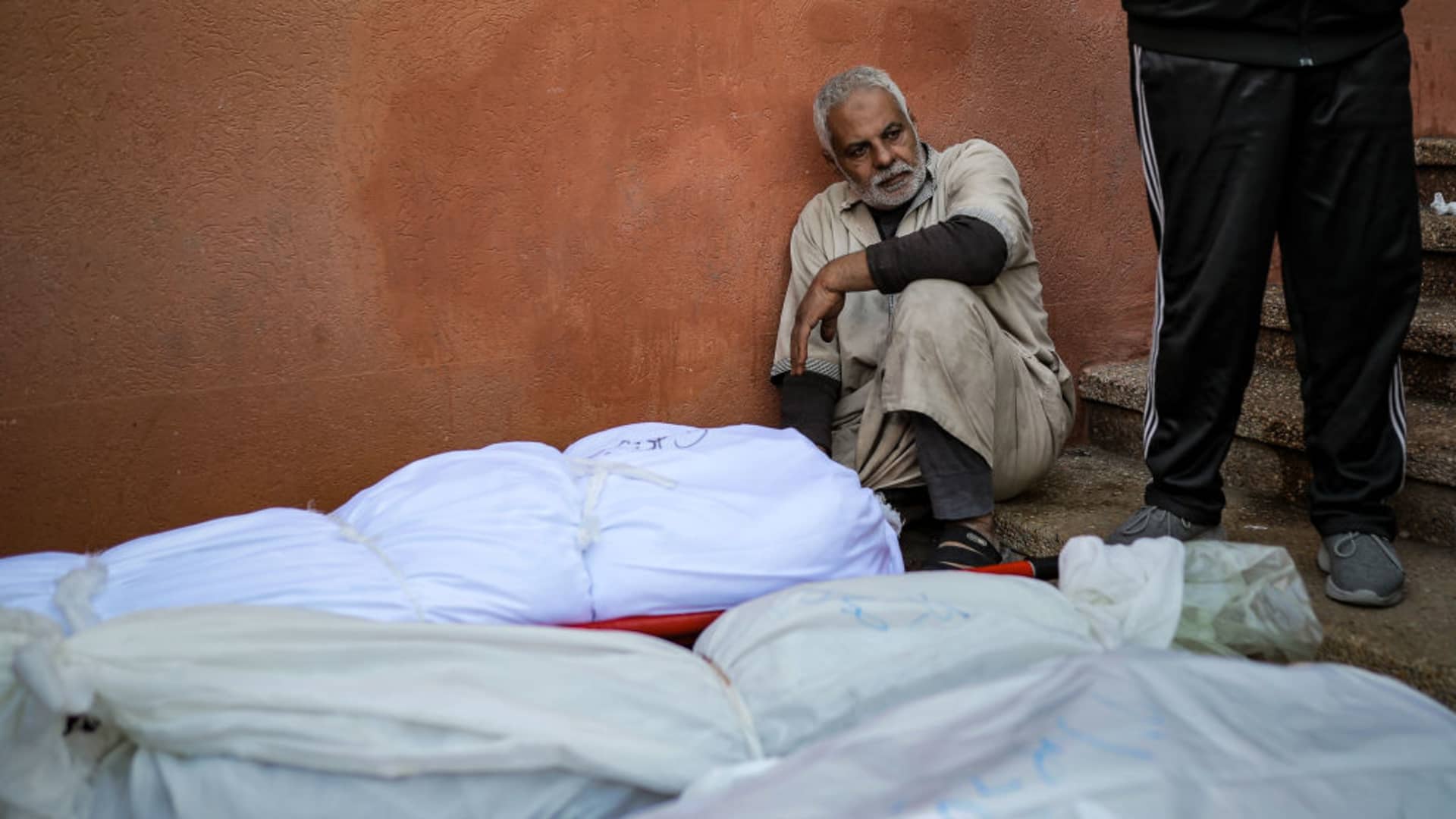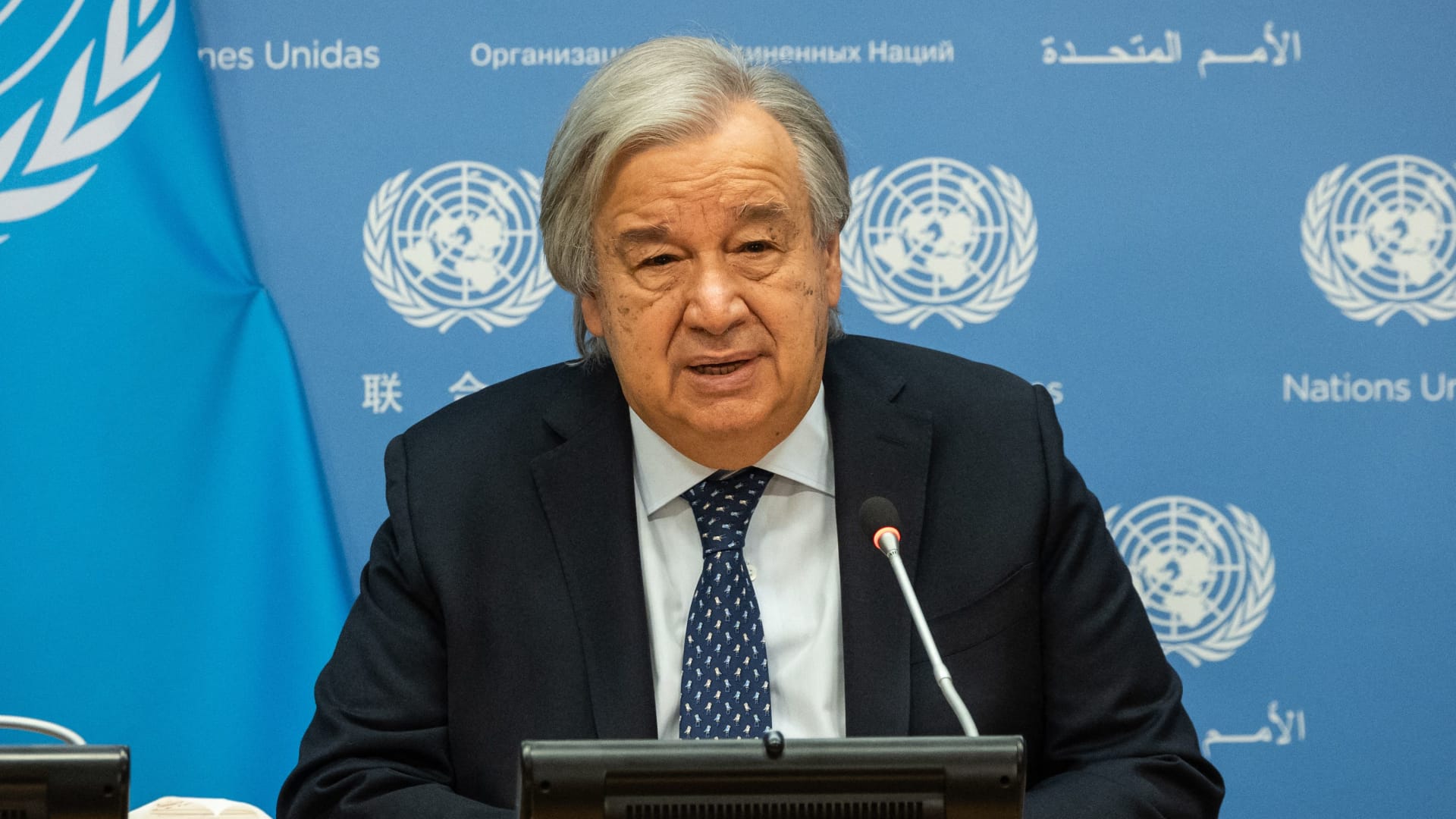
- Israel expanded ground operations into southern Gaza in early December, after several weeks of telling Gaza's residents in the northern half of the territory to evacuate south for their safety.
- Aid organizations and the United Nations warn of a humanitarian catastrophe as more than 85% of Gaza's population, or 1.9 million people, are displaced and have nowhere to go.
- "There does remain a gap between exactly what I said when I was there, the intent to protect civilians, and the actual results that we're seeing on the ground," Blinken said late Thursday.
The Biden administration issued its strongest criticism yet of Israel's military campaign in Gaza for its civilian death toll, as the Israel-Hamas war hits the two-month mark.
Secretary of State Antony Blinken stressed the U.S. concern for the protection of civilians in the besieged enclave, where local health authorities say that more than 16,000 people have been killed in Israeli attacks.
"We are focused ... on the imperative of maximizing efforts to protect civilians, and get not only assistance in but to sustain the higher level of assistance that was reached during the humanitarian pause and actually build on it. And what we've seen over the initial days is some important additional steps in the direction of doing just that," Blinken told the media in Washington on Thursday evening.
Get top local stories in Connecticut delivered to you every morning. Sign up for NBC Connecticut's News Headlines newsletter.
"Having said that," he added, "as we stand here almost a week into this campaign in the south after the end of the humanitarian pause ... it remains imperative that Israel put a premium on civilian protection. And there does remain a gap between exactly what I said when I was there, the intent to protect civilians, and the actual results that we're seeing on the ground."

Israel's military expanded ground operations into southern Gaza in early December, after several weeks of telling Gaza's residents in the northern half of the territory to evacuate south for their safety. Aid organizations and the United Nations have warned of a humanitarian catastrophe as more than 85% of Gaza's population, or 1.9 million people, are displaced and have nowhere to go.
Israel is the top recipient of U.S. foreign military funding, receiving $3.3 billion annually, which constitutes about 16% of the Israeli defense budget.

Israel says its operations are necessary to target the Palestinian militant group Hamas and that it is taking necessary precautions to avoid civilian deaths, but that Hamas uses civilians as human shields. Hamas attacked Israel on Oct. 7, killing some 1,200 people there and taking roughly 240 hostages, around 100 of whom have been released.
Money Report
Discussing Israel's combat operations, Blinken said that "making sure ... areas that are clearly out of the conflict zone, that they remain so that military means not be used in those areas" is "something that we're talking about with the Israelis on a regular basis, including, as recently as today."
Other high-ranking Biden administration officials have said in recent weeks that "too many innocent Palestinians have been killed," including Vice President Kamala Harris and State Department spokesperson Matthew Miller.

Defense Secretary Lloyd Austin, speaking at the annual Reagan National Defense Forum on Dec. 3, told the audience, "I have personally pushed Israeli leaders to avoid civilian casualties, and to shun irresponsible rhetoric, and to prevent violence by settlers in the West Bank."
It remains unclear whether the Biden administration plans to go further regarding Israel's tactics, beyond issuing statements. Washington continues to provide unconditional military aid to its ally, regularly stressing Israel's right to defend itself.

The U.N. Security Council is set to vote Friday on an immediate cease-fire after the body's secretary-general, Antonio Guterres, made an extraordinary move earlier in the week to invoke the U.N. Charter's Article 99. The article says that the secretary-general may call the council to urgently vote on "any matter which in his opinion may threaten the maintenance of international peace and security."
Speaking at a press briefing Thursday, U.N. aid chief Martin Griffiths said that the humanitarian operation in Gaza had essentially ceased to function, and that the aid reaching civilians there is "erratic," "undependable" and "not sustainable."






